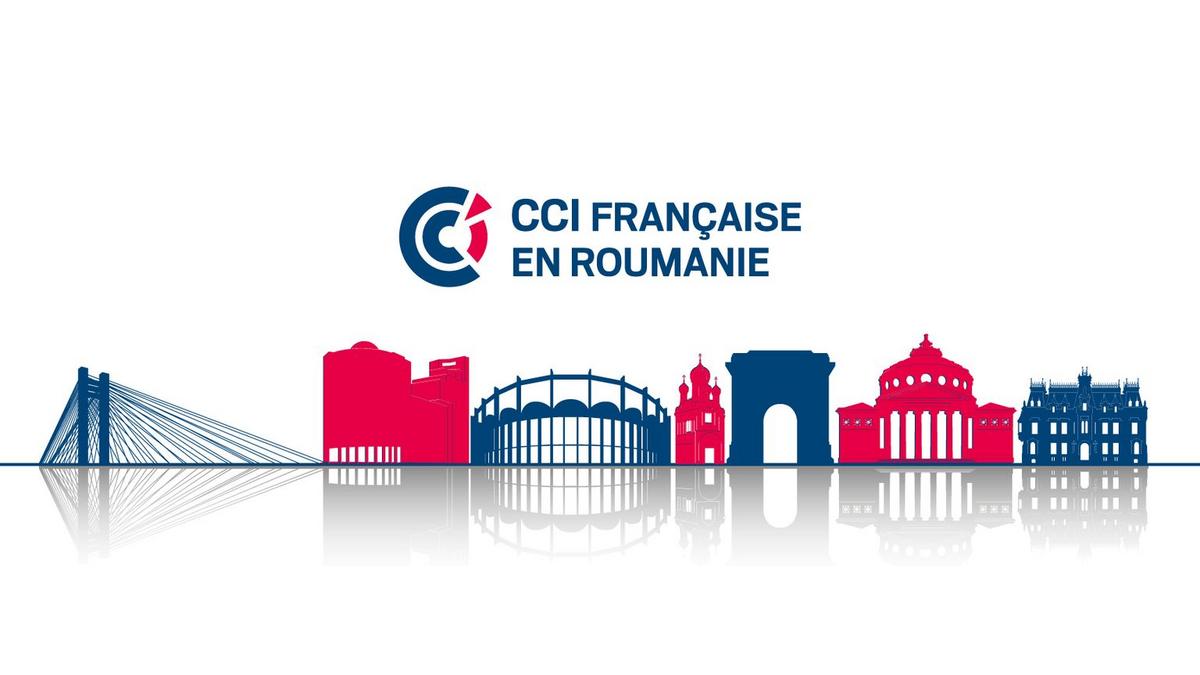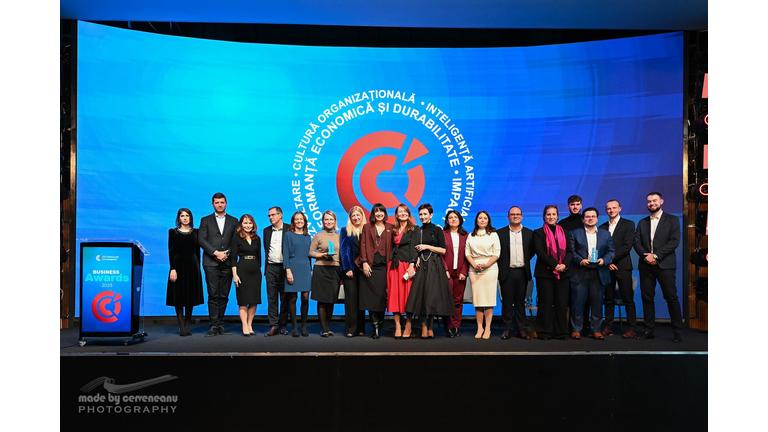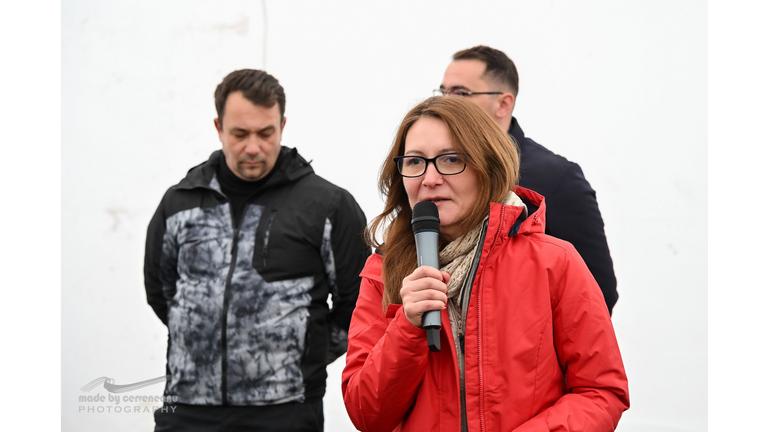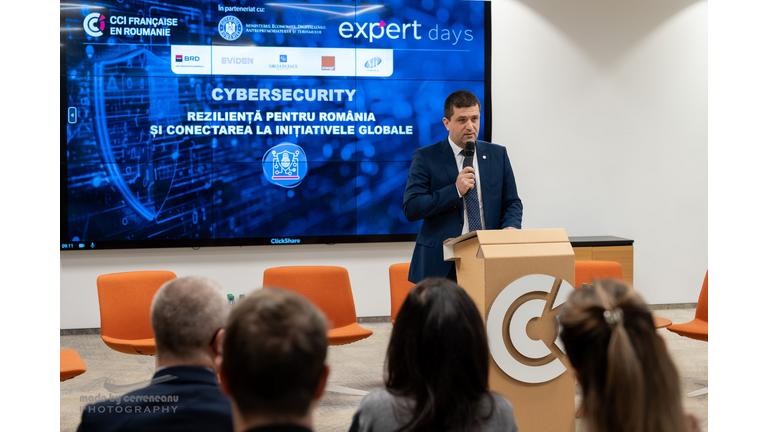Communication - Presse • Veille
#flashinfo, 23 april. COVID-19 - what perspectives for the supply chain?

Thursday, 23rd April, the French Chambers of Commerce in Croatia, Hungary, Poland, Romania, Serbia, Slovakia and the Czech Republic proposed a webinar on the subject : "Central Europe - what perspectives for the supply chain", for better visibility of border blockages.
List of participants:
- Fabrice PAYA - Environment, climate and transport advisor, French Embassy in Croatia
- Julien AUTRET- Regional Customs Attaché for South East Europe and the Balkans, French Embassy in Serbia
- Piotr DOPIERALA - Director Supply Chain & Logistics,Auchan Retail Poland
- Stefan GAIBU - General Manager Supply Chain, Renault Romania
- Jakov KARMELIĆ - General Manager, CMA CGM Croatia
- Bogdan MLYNARCZYK - General Manager, Geodis Poland
- Renaud de SAINT LAGER - Regional Purchasing & Supply Chain Director Oriental Central European Area, Lesaffre Tchèquie
- György SZABÓ – CEO, Prevost Hungária Kft.
The webinar was started by Julien AUTRET, from the French Embassy in Serbia. Mr. Autret underlined the efforts of French embassies in the region in order to identify the time and the causes that lead to present instabilities: ”Many thanks for their support to the authorities and cultural affairs colleagues in the embassy. If we look what happened in the region in the pas couple of years, there is a big impact. French embassies throught the region have reacted quickly. With my colleagues, espacially from Romania, we try to identify when and why problems are accouring. Step by step we have seen things are getting better. But at some frontieres we are still having problems because they lack manpower.”
Julien AUTRET mentioned the impact the closing of border has on the freedom of circulation of goods and persons, as well as the work of the police and customs in order to ensure a smooth process of boarder crossing: ”Solutions find in coordinated actions. Today we hear less of problems at the boarders. But we have to stay vigilent as some countries think of lifting the lock down on populaitons, that can be a main issue for businesses in the future weeks”.
Regarding the yeast crisis that accourd in Europe in the past weeks, Renaud de SAINT LAGER - Regional Purchasing & Supply Chain Director Oriental Central European Area, Lesaffre Tchèquie, representant of a company that produces yeast, said that the „ Supply chain logistic is a key point. When the crisis arrieved in europe – the bakers where very strongly impacted and some had to close.”. As the main consumption of yeast is for the moment within households – 50% more than last year, , Renaud de SAINT LAGER says that, after a peak of baking during Easter celebration time, consumers will see in the stores more yeast.
When asked what happened is the retail sector when the crisis hit and the people started to buy out of panic, Piotr DOPIERALA - Director Supply Chain & Logistics, Auchan Retail Polonia confessed the crisis has been an element of shock for them too - ”The crisis – an element of chok for all of us. There was panic in the market. Highier demand and no one was prepared from our side and of suppliers to react that fast. There are huge fluctuations on the market. Low after a few days of high peeks. This effect is magniefying, being transfered from suppliers to suppliers. An important part of the crisis was the change in the demand structure. Over the Christmas period, when the demand is higher, we can deal with it. But now, with chlorine, toilet paper, yeat etc... it was a very difficult part to manage.”
Being in top 5 retailers in Poland, E-commerce has been already an important element for the group : ”There was also a change in the structure of distributionon. Some channels have grown rappidly. Suddenly we are not able to cope and have to swith a huge percent to online channels. The second part is how to cope with that – what is the degree of responsiveness. How to cope to store replanning was a chanllange for the entire organisation – how to rethink the way of working? You have rezevs for a few days, but than need to ask the suppliers for more. But no one was prepared for such a big increase of demand. (...) The crisis is changing the way of how we work on a daily basis. We moved the majority of our management personnel to work remotely. For those who work in store we had to increase procedures to reduce the risk in order not to affect the whole supply chain. We had good cooperation with suppliers in order to find procedures of coping to the crisis. We have defined the best practices , common rules of how to protect ourselves and otheres. We have them in written form and it really helps us to cope.”
According to Jakov KARMELIĆ - General Manager, CMA CGM Croatia d.o.o : „This is a very challenging time for tranports. The result is that we work at only 40/45% of our ussual performance as the big players decided to stop their most part of the fleet. Our portfolio of custumers is diversified and helps us survive as a company. The big question is how all this willl end and how this will restart, if it will restart. It seems pretty much to me that the good old days will not come back. We may be in the situation where this kind of transportation will dissappear.”
Jakov KARMELIĆ says tha a key to survive is to organize very precisely: ”We also implemented very strict measures, guided our staff and organizes home office. Reorganisation is mandatory but not suffiecient. We have to think how to decrease capacity and how to reorganise ourselves. There is a huge capacity in the transportation market.”
According to M. György SZABÓ – PDG, Prevost Hungária Kft. / air cargo business, the demand decreased a lot, particularly in the automotive industry, as big players decided to stop a significant part of their fleet (up to 70% of their activity). In Hungary there is no special aid regarding wages – the drivers are put to technical unemployment. The good old days will not soon come back and the whole industry will certainly be reshaped after the pandemic.
Bogdan MLYNARCZYK- General Manager, Geodis Polonia: „ The closed border is not a normal situation for as. But we have no problemm with the capacity of the market. I think now the key for trasport companies is the difersifications of the clients portfolio. Because there is an increase in demand in certain domains, like pharma. So, the key to be in the good positon is to have diversification of portfolio of clients.
Mr. Bogdan MLYNARCZYK ads that it is not easy for logistic company but sometuimes it depands on what you are doing : ”We represent also contract logistic servicies. For us the situation is quite good because the china market restared. We increased our volumes as the demand increased also. The biggest problem now is the road transport and it depend a lot on what you are serving. The most affected industry in the automotive, an industry essential in europe. And now a lot of companies have closed their activities completly or partly. Now the capcity of the market is quite big. A lot of companies wait for the restar of the automotive industry to restart. ”
Stefan GAIBU - General Manager Supply Chain, Groupe Renault Romania
Renault is very presend in EU, but also globally. Across Europe, with 44 plants. Surprisingly, the 1st problem did not came from China, but from Italy, as they had 3 main important suppliers there. So the 1st priority was to dedicate a specific task force team in order to ensure the continuity and find back-up solutions.
Other challenge: switch to home work organization : „ Home work organisation was a challenge and also a test ofr us. Because for supply chain priority is not to stop activity. The second was what strategy to build and ensure continuity. Hoe to preprare to restart. And third – what changes to make when we restart? (...) What next? We are in the situation to restart progressively our production in china. In europe we just restarted this week in Pitesti. More than 200 people will restart. We gradually increase the ensembly line. It will be a progressive restart.”
A plant in France that produced ZOE also started. How to supply mask and ensure that they have enough at least for the short term?
- What issues in supplying european market? Medical supplies became no 1 piority. Did you handle a lot of medical supplies? How much time it takes to tranport this type of goods?
Jakov KARMELIĆ - General Manager, CMA CGM Croatia d.o.o:
- All the times, they had regularity in activity. They had vessels from Asia coming to their area, and they did not have a disruption in their activities. Traffic is lower, but in therms of supply chain, and regularity, they did not feel an impact as transport ran smoothly. Shipments by rail and truck went effortlessly. But there was no supply deadlock for a concerning period of time.
- Limited contact of their staff. All procedures run smoothly without any disruption.
- Supply of medical stuff, if they were loaded on containers, they were arrived in the agreed time to their destination.
Renaud de SAINT LAGER, Regional Purchasing & Supply Chain Director
Oriental Central European Area, Lesaffre Tchéquie : Local suppliers have to be taken into account. The strategy of sources will be clearly backed it.
- Are we digitalizing the supply chain processes that can help us act faster and better?
György SZABÓ, - Prevost HungáriaKft.: It is a lot of room for improvement mainly in data processing and transforming the whole business in something smarter. Until now, there was no need, but rather a mediocre level of intelligence. A possible change coming from this point of view. This pandemic can bring such a change. Drive as little as possible, empty spaces in the trucks and moving the car when it is not needed.
Jakob: extremely good change to develop digitalization of our whole business processes. 90% of their staff worked smoothly from home. There is enough proof now of the benefits of the digitalization. Explore digitalization to the maximum extent.
Karol KOLODZIEJCZYK - agree with my colleagues. Nothing will be the same after covid-19 . actaully all of our employees are working from home: information of transit time, confirmation of request etc. Everything is confirmed online. We can work without paper. It is still possible to confirm the transport. Digitalization is the key to change all logistics processes, especially in transport.
- Invest supply chain management changed? Supply network mapping?
Piotr DOPIERALA - Auchan Retail Poland : Now we fully understand why it is fully important to have.
The substitutions of suppliers. Make a daily analysis of regular suppliers, taking into account specific risk categories and regions. Safety procedures are crucial. Protecting customers and personal were in main focus.
Stefan GAIBU - Renault Romania: ”Fully review of the networks of suppliers. We are at the heart of this activity. For us, it is a big opportunity to go harder and faster in this review of supply network.”
Jakov KARMELIĆ - CMA CGM Croatia: The most important is the internal capacity management in order to maintain regularity of arrivals and departures in our area.
How would you say this crisis changed your mindset?
Renaud de SAINT LAGER - Czech Republic : 1st of all, what will be the market tomorrow? The trend of household will adapt our capacities and flows.
Price expectations:
Piotr DOPIERALA - Auchan Retail Poland : No one knows the impact of customers. Trnover is not however due to change in structure. This emerging online channel is creating huge demand in distribution.
Stefan GAIBU - Renault Romania: the focus will be not to increase the price but to maintain the survival level at least. We can suspend some specific standard specifications flows. Specific transport plans for limited period just to have a good level of cost, to permit the survival of our partners, and us.
- What are your feelings on financial conditions of transports?
Karol KOLODZIEJCZYK :Unfortunately, we do not have a crystal ball. The situation in transport market in not easy now. At the beginning of year the capacity of the market was very low and a lot of companies had problems with drivers. How the situation will change? Some of the companies worked in some special sectors (such as auto) and have big problems now. On other hand, other companies try to work with FMCG.
György SZABÓ - Prevost Hungária Kft. :„Churchill said never let a good crisis go to waist. This is a right opportunity to restructure, reorganize, redefine the business. The age expectancies and availability will simply disappear. In such time of crisis, as Macron says, in times of war a lot of new things will pop up. Alternative energy sources can reshape the activity. Unexpected solutions might appear for those who will survive. Those who are better organized will probably be here to expect the better new world that will expect us after the taxes.”
- How tech could help you to avoid direct contact?
Stefan GAIBU - Renault Romania: Digitalization for supply chain, as project, originated long time ago, but under this time is under headlines. IoT & blockchain, personally speaking, is already in the past for now. Renault is very involved in the concept of industry 4.0.
Piotr DOPIERALA - Auchan Retail Poland : „Technology is one element. We are not really speaking the same language of information exchange. But that is something absolutely necessary. We have the tools; we have to implement them in a much global scale. That could help really fast.”
Julien AUTRET- French Embassy in Serbia : French customs working to develop to use all the systems they have in order to avoid paper. But easy (UK-France), paper still have to be used. Systems must communicate to each other. It is a matter of language.
Observations:
- The begging of crisis created shock, panic, high demand regarding certain good. This situation has an impact on transport and companies had to reorganize and put in place specific measure for employees and ensure that businesses will still be able to work.
- Automotive companies had a real impact in EU, and not only. Because China is a big supplier for a lot of companies and had a huge impact.
- Road transport was more impacted than maritime transport, because there was still regular shipment of good by containments, even if in term of goods, there was less exports from China.
- Difficult to foresee the near future. They had to adapt do different situation in the day to day work. Exchange of information via digitalized documents, moving towards paperless solutions.
- For most businesses, the analysis of supply chain is key point.
- This crisis nobody could foresee. The end as well. But the adaptability is the solution.
- Good impact in terms of how businesses adapt to crisis.


